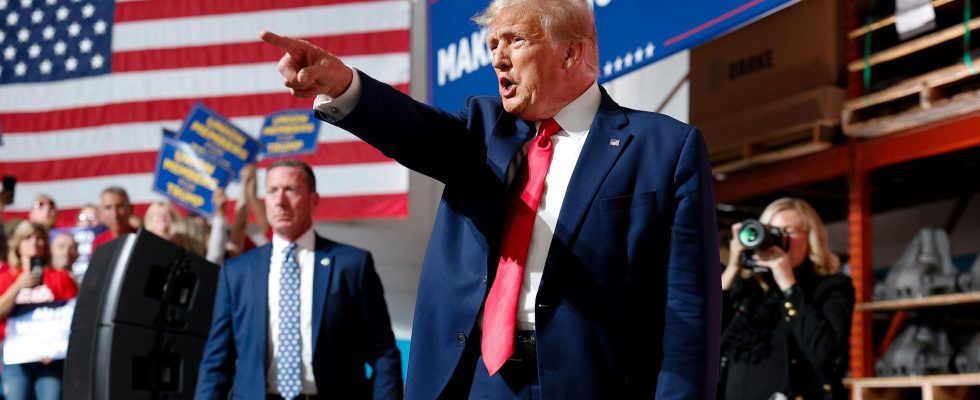Tina Magnergård Bjers/TT
unsaveSave
expand-left
full screen Republican and ex-president Donald Trump, photographed in Michigan last fall. Stock Photography Photo: Mike Mulholland/AP/TT
Can Donald Trump be voted out of the presidential race citing the deadly storming of the Capitol and a law written in 1866?
The Supreme Court of the United States today takes up what is likely to be the most politically charged case in decades.
Here is a guide in question-answer form to the hearing in HD, which begins at 4 p.m. Swedish time.
.
What will the court decide?
Donald Trump has appealed a ruling by the Colorado State Supreme Court that came in December. In short, it meant that Trump’s name was not allowed to appear on the primary election ballots there. This is in reference to the third section of the 14th amendment to the constitution, which prohibits people who supported a rebellion from standing for election.
.
The 14th Amendment to the Constitution – What is it?
It was written in 1866, shortly after the Civil War ended, and aimed, among other things, at preventing rebellious Southern representatives from taking seats in Congress. The text states that anyone who has participated in or supported a rebellion – and previously sworn to protect the constitution – may not hold public office, civil or military.
.
Who runs the case?
Behind the mood in Colorado is a handful of Trump-critical Republican and independent voters with the organization Crew (Citizens for Responsibility and Ethics in Washington) behind them. Similar cases are ongoing in a number of states, which increases the pressure on HD to put its foot down.
The argument goes that Trump’s actions on January 6, 2021 were rebellious. He then held a political rally where he repeated his false claims of systematic fraud in the 2020 presidential election. Trump urged supporters to go to Congress and “get the hell out of there.”
.
What does the Trump side say?
That Trump was in no way involved in rebellion. He was never inside the Capitol and in the speech he did not call on his followers to act violently – but to be peaceful. The president exercised his freedom of speech and spoke about an election victory he felt was robbed of, according to the lawyers.
.
What are the key questions?
Many, as writing has not been tried in HD before:
Does the text of the law still apply or was it written solely with the civil war in mind? Does the rule really apply to the president, whose office is not mentioned in the text? Was January 6th a rebellion? And who in a state gets to decide whether a candidate should be struck off the ballot?
.
How is the mood in HD?
Probably tense. It is well known that Chief Justice John Roberts wants to keep law out of politics and avoid a repeat of the events of 2000, when HD was forced to decide the even presidential election between Al Gore and George W Bush in favor of Bush.
Add to that that trust in HD is at a record low. Conservative Justice Clarence Thomas has been asked to step aside as his wife is a well-known Trump activist who attended the Jan. 6 political rally.
FACTS Supreme Court of the United States
The Supreme Court has its seat in the capital, Washington DC. Established in 1789, it is the judicial branch that balances the executive (presidential) and legislative (congress) powers. In practice, the court determines whether laws and judgments are in accordance with the United States Constitution that was written in 1787 and its amendments.
The court has nine members appointed by the president for life. They can, however, retire at their own request and, in theory, be removed by impeachment. The judges must be approved by a majority of the members of the Senate.
When you talk about HD’s judges as conservative or liberal, you mean mainly in the view of constitutional interpretation. The conservatives believe that the text of the law should be interpreted strictly, the liberals believe that current conditions can play a role.
Republican ex-president Donald Trump nominated and got through three conservative judges: Neil Gorsuch, Brett Kavanaugh and Amy Coney Barrett, which means that six of the nine sitting judges are considered conservative.
Source: supremecourt.gov and others
Read more
